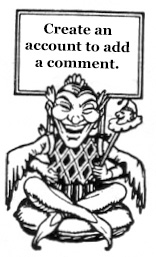Whitman card games
In the 1970s Whitman Publishing Co. ordered a series of popular games from Hong Kong for the UK market.
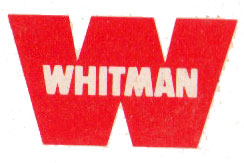
Space 1999
Gerry Anderson’s Space 1999 card game published by Whitman in 1978, featuring characters and ships from the 1970s Space 1999 television serial. The deck contains 8 character cards (4 of each) and 4 switch cards. Character cards have symbols at top left corners: stars, moons, chequers & planets. Commander John Koenig has moon symbols. See the Rules►
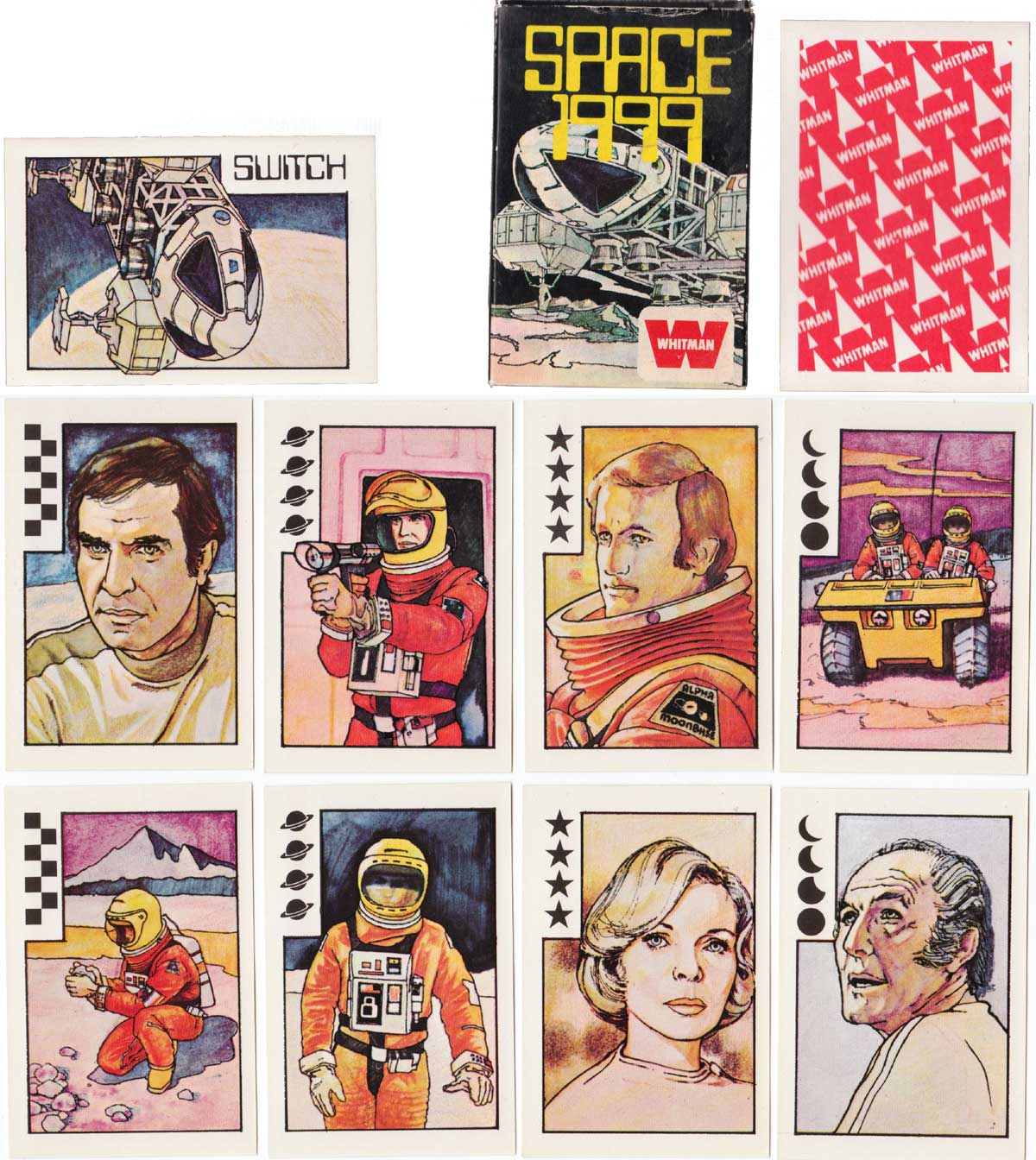
Above: Space 1999 card game, published by Whitman, 1978. 36 cards in box.
Paddington
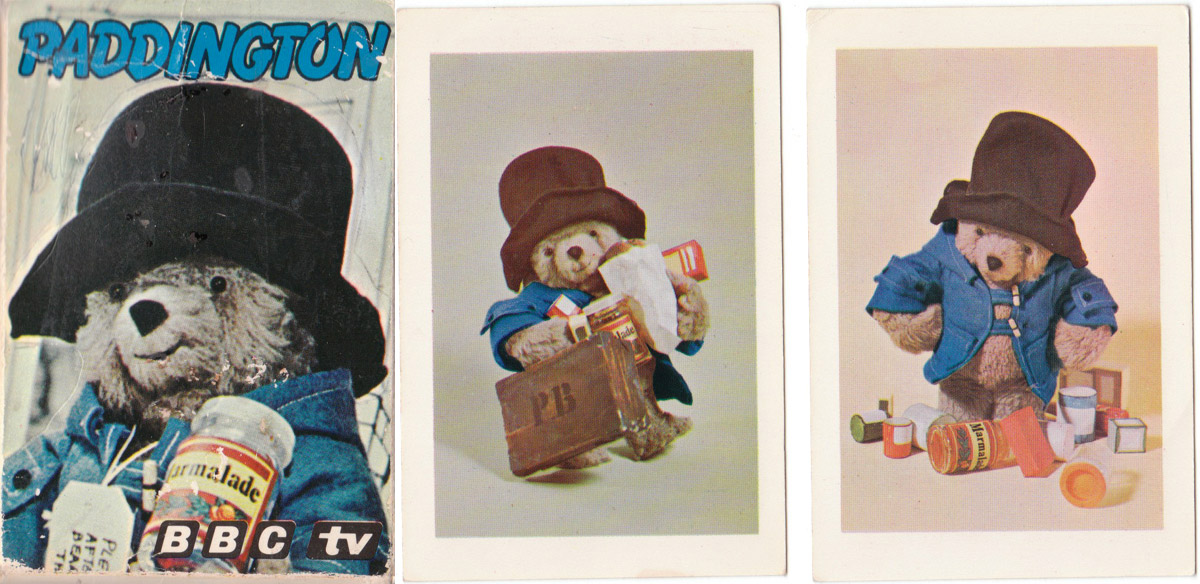
Above: Paddington card game published in UK by Whitman, 1974 more►
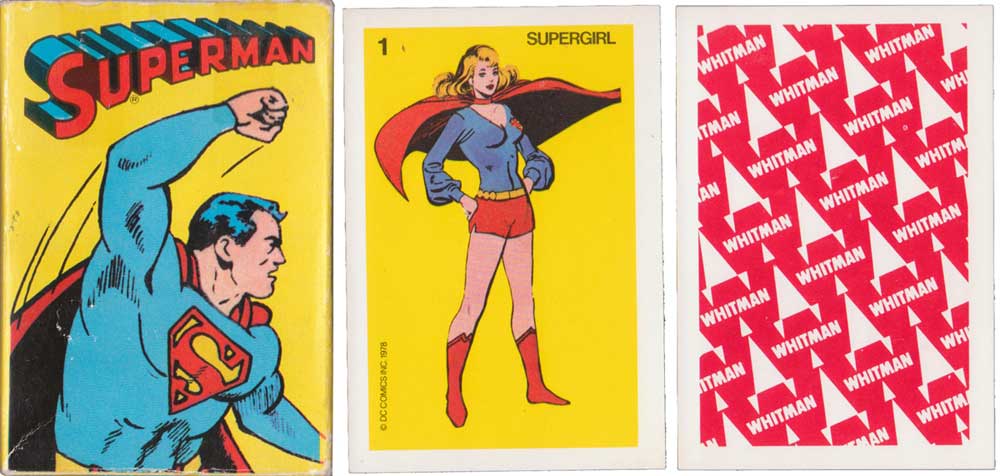
Superman
Superman is a fictional superhero who first appeared in American comic books published by DC Comics in 1938. See the Rules►
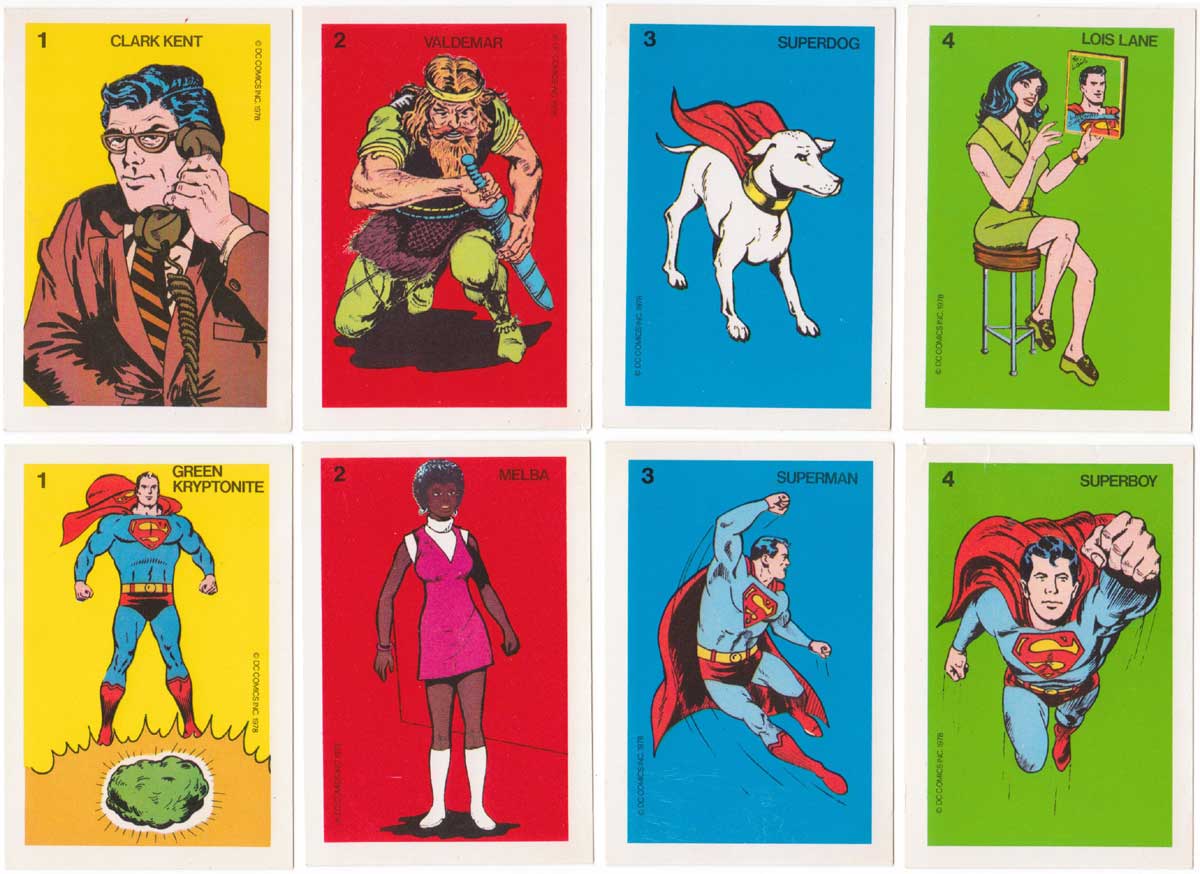
Above: Superman card game published in UK by Whitman. 36 cards in box. © D.C. Comics Inc 1978.
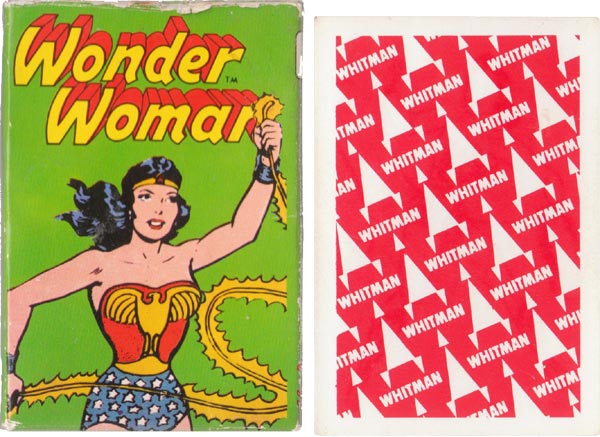
Wonder Woman
Wonder Woman is a fictional superheroine first appearing in American comic books published by DC Comics in 1941, during World War II. See the Rules►
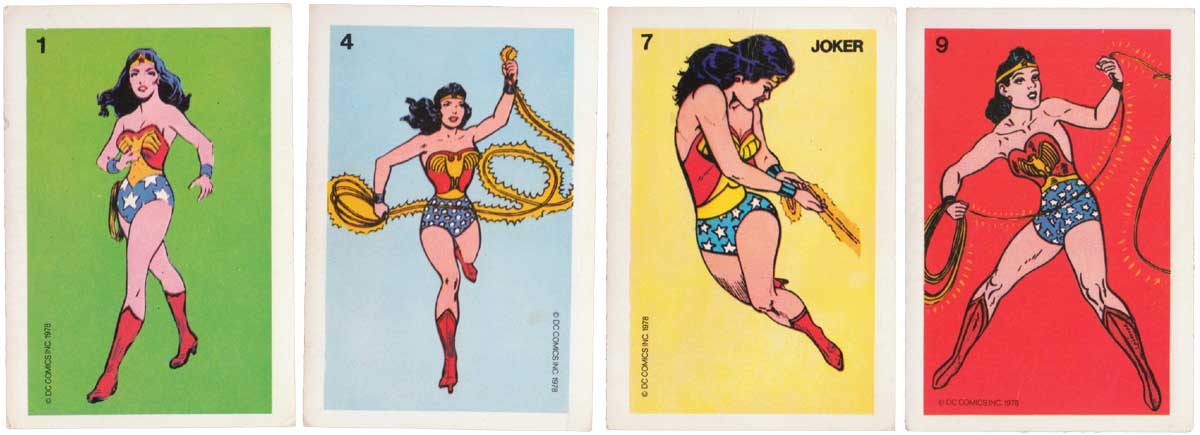
Above: Wonder Woman card game published in UK by Whitman. 36 cards in box. © D.C. Comics Inc 1978.
Other Titles
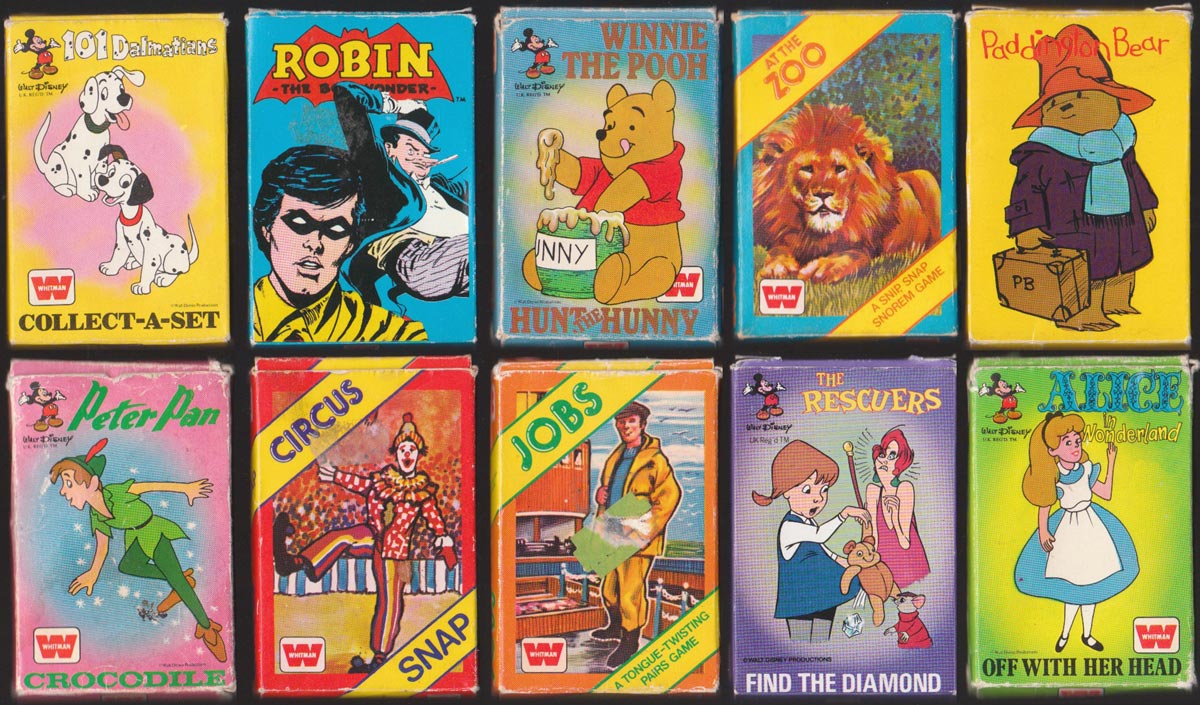

By Rex Pitts (1940-2021)
Member since January 30, 2009
Rex's main interest was in card games, because, he said, they were cheap and easy to get hold of in his early days of collecting. He is well known for his extensive knowledge of Pepys games and his book is on the bookshelves of many.
His other interest was non-standard playing cards. He also had collections of sheet music, music CDs, models of London buses, London Transport timetables and maps and other objects that intrigued him.
Rex had a chequered career at school. He was expelled twice, on one occasion for smoking! Despite this he trained as a radio engineer and worked for the BBC in the World Service.
Later he moved into sales and worked for a firm that made all kinds of packaging, a job he enjoyed until his retirement. He became an expert on boxes and would always investigate those that held his cards. He could always recognize a box made for Pepys, which were the same as those of Alf Cooke’s Universal Playing Card Company, who printed the card games. This interest changed into an ability to make and mend boxes, which he did with great dexterity. He loved this kind of handicraft work.
His dexterity of hand and eye soon led to his making card games of his own design. He spent hours and hours carefully cutting them out and colouring them by hand.
Trending Articles
Popular articles from the past 28 days
Related Articles
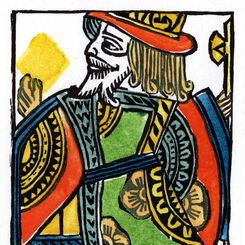
Woodblock and Stencil King of Diamonds
A limited edition art print of the King of Diamonds 1984 woodblock joker.
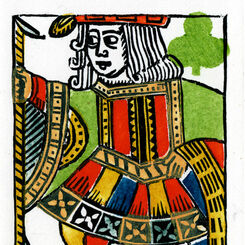
Woodblock and Stencil Jack of Clubs
A limited edition art print of the Jack of Clubs 1984 woodblock joker.
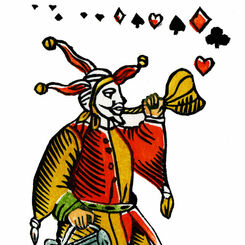
Woodblock and Stencil Joker
A limited edition art print of the 1984 woodblock joker.
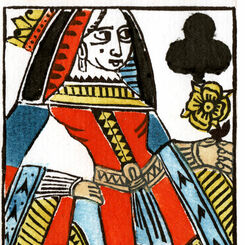
Woodblock and Stencil Queen of Clubs
A limited edition art print of the Queen of Clubs 1984 woodblock joker.
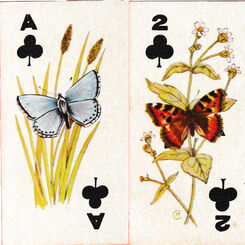
Sweetule Natural History cards
Small cards featuring natural history subjects, given away with packets of sweet cigarettes.
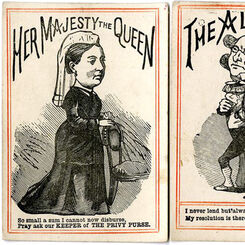
Lend Me Five Shillings
or “Her Majesty’s Privy Purse” - a merry round-the-table game published by D. Ogilvy.
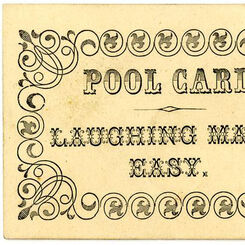
Laughing Made Easy
a Victorian card game published by D. Ogilvy.
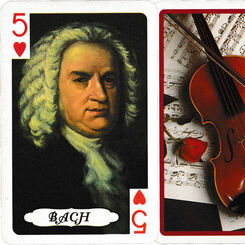
Music playing cards
Portraits of 13 classical music composers.
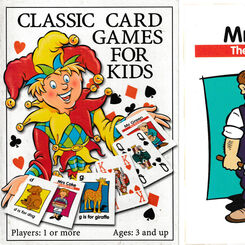
Classic Card Games for Kids
A boxed set of playing cards, Happy Families and an alphabet pack with rules for 22 games.
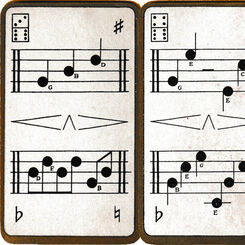
So-Lah – A Game of Music
An early 20th century domino-type musical card game by Goodall.
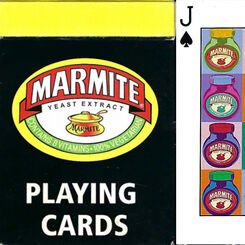
Marmite
Fifty-Four images celebrating a UK savoury spread, that has been around one hundred and twenty two y...
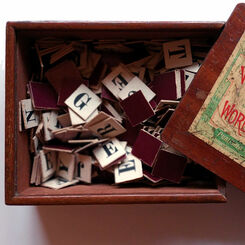
Word Making and Word Taking
How crossword and spelling games became popular.
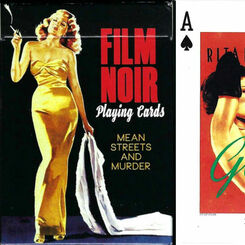
Film Noir
A deck of 55 cards, celebrating hard boiled heroes, wise-cracking women, mean streets, guns and gums...
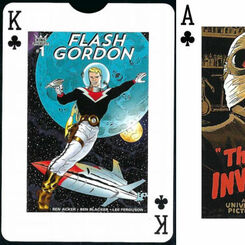
Science Fiction
A deck of 55 cards, celebrating a time when Science Fiction truly was, Science Fiction.
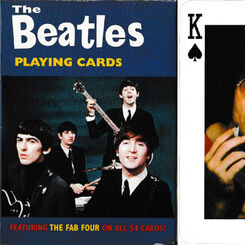
The Beatles playing cards
Two packs featuring photos of The Beatles issued by the same publisher in 2004 and 2005.
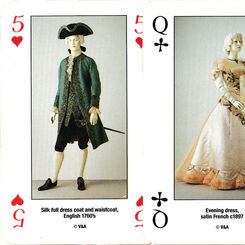
Costume Playing Cards
Four centuries of costumes from the Costume Court at the Victoria and Albert Museum.
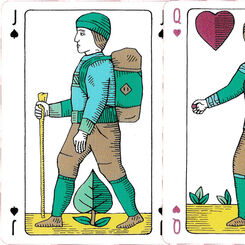
Commoners playing cards
Created by Ian Cumpstey dedicated to the common land and the countryside.
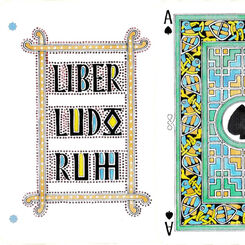
Liber Ludorum
Liber Ludorum playing cards created by Ian Cumpstey in the insular style, United Kingdom, 2019.
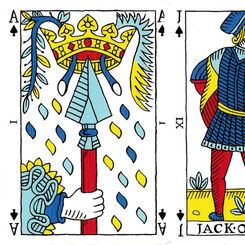
Pike and Clover playing cards
Pike and Clover playing cards created by Ian Cumpstey, Cumbria, UK, 2018.
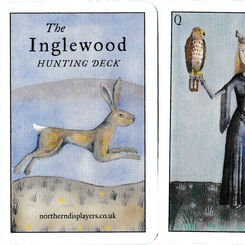
Inglewood Hunting Deck
Inglewood Hunting Deck created by Ian Cumpstey, United Kingdom, 2023.
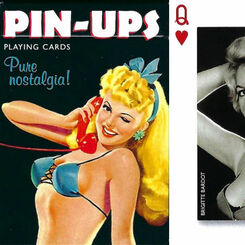
Pin-Ups
A deck of 55 cards celebrating a golden age of cheeky, naughty, bold and curvy ladies in film.
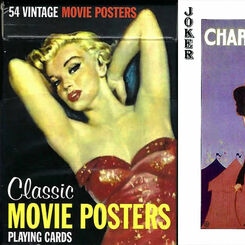
Classic Movie Posters
A deck of 55 cards presenting vintage classic movies and their stars.
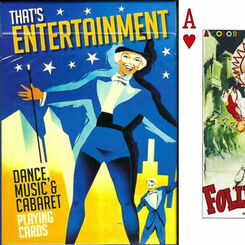
That’s Entertainment
A deck of 55 cards celebrating 20th Century vaudeville, musicals and cabaret.
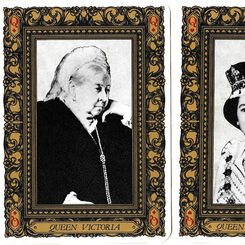
British Monarchs
Commemorating the royal wedding of Charles, Prince of Wales to Lady Diana Spencer on the 29th
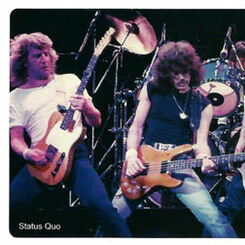
Rock & Pop Legends
Stunning photos of a selection of US and UK music artists.
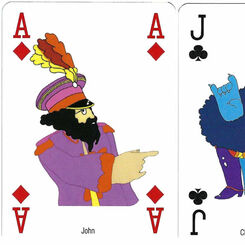
The Beatles • Yellow Submarine
A colourful deck celebrating the 1968 animated feature film based on the Lennon/McCartney song of th...
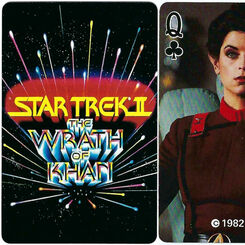
Star Trek II • The Wrath of Khan
This deck is a vibrant photographic tribute to "Star Trek II: The Wrath of Khan," one of the most be...
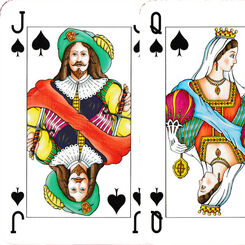
Dutch Court playing cards
Games & Print Services’ version of the Dutch pattern.
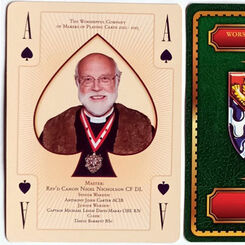
Past Masters’ Association Presentation Pack
The Worshipful Company of Makers of Playing Cards Past Masters’ Association Presentation Pack, 2013....
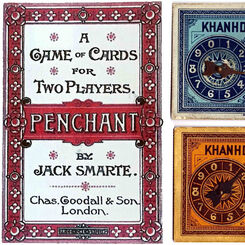
The Search for New Games in the late 19th century
A few new games survived and are still around today; most came and went and are only witnessed in th...
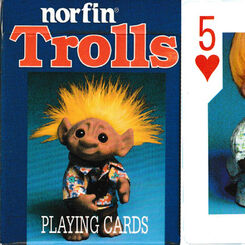
Norfin® Trolls
Troll dolls with gaudy hairstyles in a multitude of different costumes.
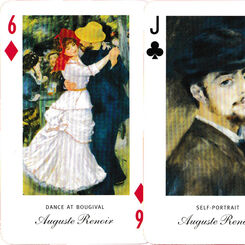
Impressionist Art Cards
Details of 13 paintings by 8 different Impressionist artists on elongated cards.
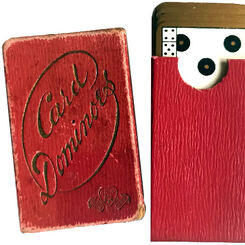
Miniature Card Dominoes
A miniature set of Goodall domino cards (5.9 x 3.5 cms) still in perfect condition.
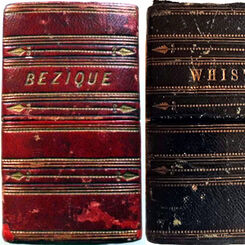
T. Drayton & Son
Bezique and Whist boxed sets by T. Drayton & Son, London, c.1875.
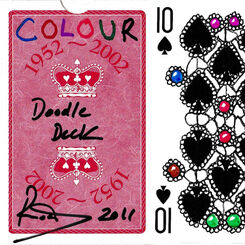
Colour doodle deck
“1952-2002 commemorative deck” customised with doodles by an uncredited artist, UK, 2011.

Safety playing cards
Safety playing cards designed to reinforce the “Think and Be Safe” concept.
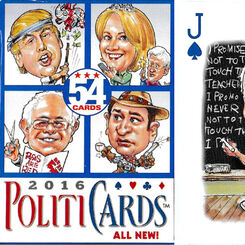
Politicards 2016 & Politikids 2016
Politicards™ 2016 & Politikids 2016: twin decks of satirical playing cards produced by Peter Green f...
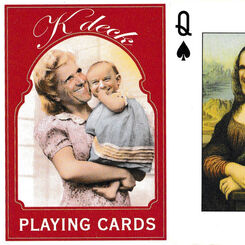
K Deck
“K Deck” political playing cards, USA, c. 2004.
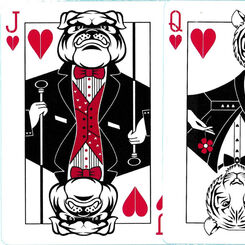
Tuxedo playing cards
Stylish ‘Tuxedo’ playing cards with animal faces created by Natalia Silva, USA, 2016.
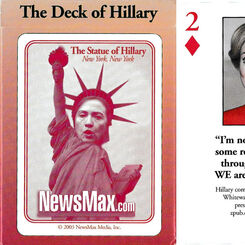
The Deck of Hillary
‘The Deck of Hillary’ with quotes and photographs of Hillary Clinton, USA, 2003.
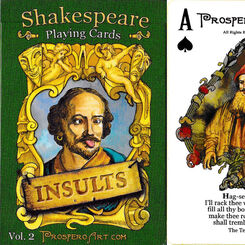
Shakespeare playing cards: Insults
Shakespeare Insults playing cards with portraits by Jan Padover, USA, 2005.
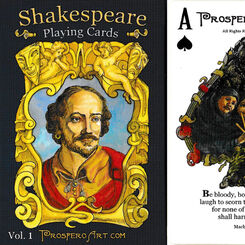
Shakespeare playing cards: Quotes
Shakespeare playing cards: Quotes, the first volume of a double set published by Prospero Art of San...
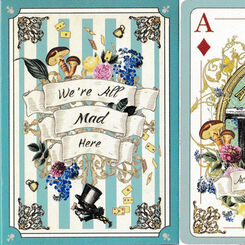
Alice in Wonderland: we’re all mad here
Alice in Wonderland themed playing cards, UK, 2020.
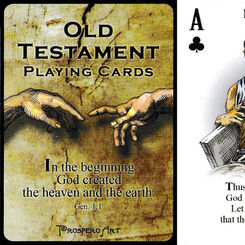
Old Testament playing cards
Old Testament playing cards with illustrations by Jan Padover, USA, 2012.


